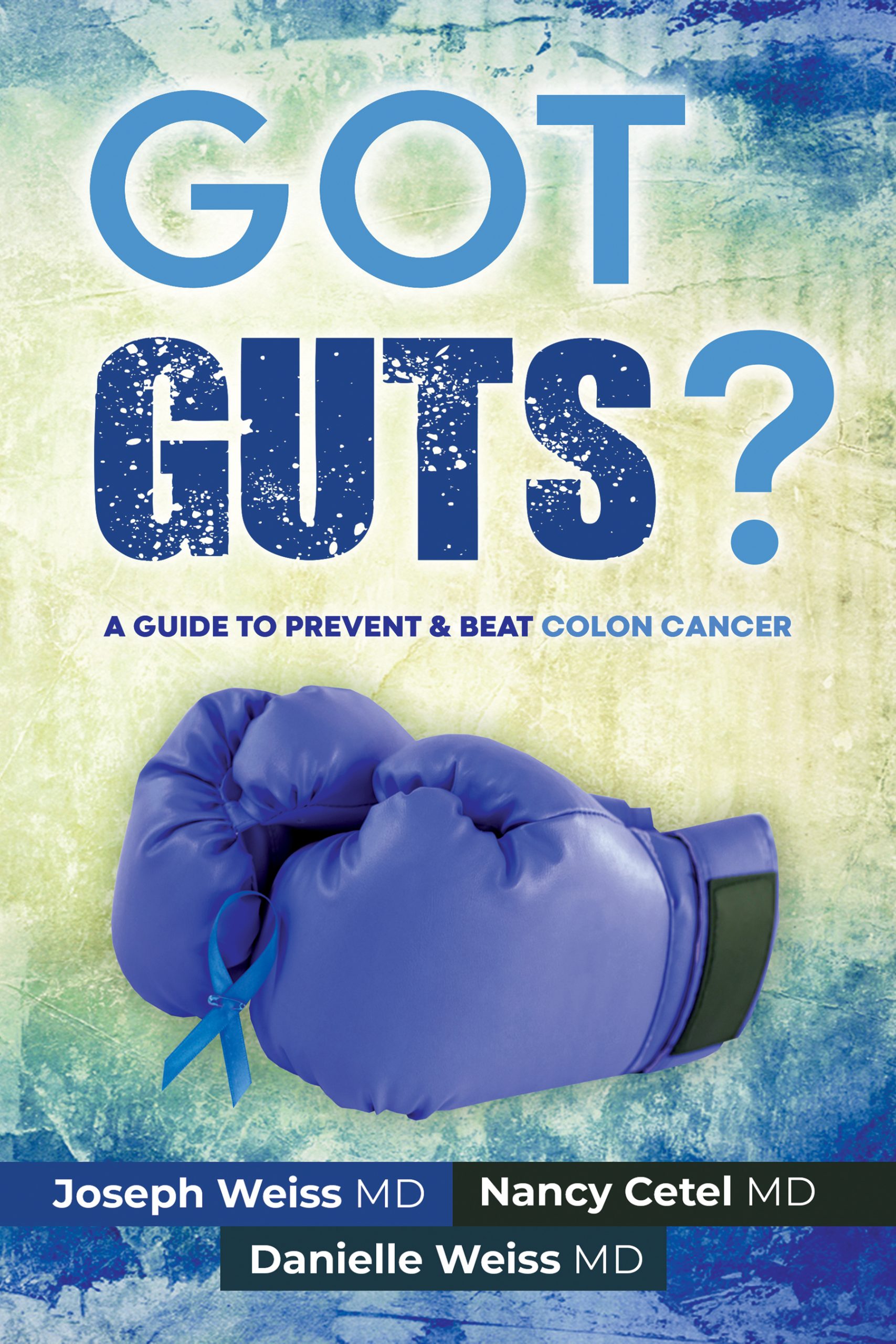Preserving wealth is important, but preserving health is paramount!
March is National Colorectal Cancer Awareness Month, and the United States has one of the highest rates of colorectal cancer in the world. Unfortunately, the Standard American Diet (SAD) is a major contributor to this avoidable risk. Most people prefer not to gamble with their finances, but for those who do, improving the odds of winning is a cardinal rule. Gambling with your life is never worth it and reducing risk has the utmost value. No one hesitates to purchase fire and theft insurance, even though the risk is only a fraction of one percent. The five percent risk of colorectal cancer for the average American is significantly higher. Why not invest in the insurance of early detection?
It remains a puzzling aspect of human behavior that improving the ability to avoid death (and illness) is often an afterthought and is lower on the list of priorities than selecting material possessions that have an even shorter time span of value. Of all the many illnesses and conditions that can lead to a premature loss of life, cancer is the one that more people fear than any other. The fear is justified not only because of its high mortality when found later in its course, but also because the expense of treatment goes beyond finances to reducing the quality of remaining life.

Early Testing for Colorectal Cancer Is Easy
People who feel well may not recognize that continued good health is not a guarantee. Proactive measures can offer valuable and continuing dividends. What we don’t know about our health can hurt us. Colorectal cancer (CRC) is a particular challenge because it is silent during its early course. If it is found early, it is relatively easy to treat and cure. When colon cancer begins to show signs and symptoms, such as visible internal bleeding, pain, constipation, obstruction or an abdominal mass, it is typically more advanced and less forgiving. Many colon cancers begin as a benign polyp and can grow silently for years before developing into a cancer. Screening can identify the majority of cancers and polyps at an early stage, well before they develop into life threatening cancer.
Changes in Screening With Non-Invasive Technology
The approach to screening has changed for the better over the years. The simplest, fastest, least expensive test can identify microscopic and invisible traces of internal bleeding in the feces (stool). The newer FIT test (fecal immunochemical test) has even greater sensitivity and specificity than the older chemical tests and does not require dietary restrictions. It is either mailed back to a central processing laboratory or can be interpreted at home with a color indicator if positive.
If no blood is detected, the test should be repeated once a year. If blood is detected, further evaluation is necessary. A more advanced and sensitive test combines FIT with multi-target stool DNA markers (available by prescription under the brand name Cologuard), which should be performed every one to three years. Other blood and urine tests for colon polyps and cancer are available but have lower sensitivity and specificity.

What About a Colonoscopy?
If blood is identified the follow-up test is a colonoscopy, a visual internal inspection of the entire colon. Colonoscopies are also offered every 10 years as an alternative screening test that can replace the annual FIT. Although this is an invasive procedure with potential complications, it has the advantage of being able to remove precancerous polyps and identify early colorectal cancer.
To make the examination as safe and effective as possible, it is important to select the best gastroenterologist, anesthesiologist and outpatient or inpatient facility. The colon must be as clean as possible to allow a complete and accurate examination. The preparation is often the most inconvenient and unpleasant aspect of the entire process. If there is inadequate cleansing of the colon, the colonoscopy has limited accuracy and may need to be repeated. Colon hydrotherapy may be an easier alternative than the classic preparation.
Risk Mitigation
While the identification of risk factors and screening are very valuable and potentially lifesaving, the wisest investment of all is in prevention. For colorectal cancer that would include avoidance of red and processed meat, excess alcohol, tobacco and a sedentary lifestyle. Low dose aspirin every day is a chemopreventive that reduces the risk of colon cancer by 50 percent, but the potential risks of aspirin should be evaluated by your health care provider first. Other preventive measures include increased intake of fruits, vegetables, fiber, folate, calcium and dairy products, selenium, vitamin B6 (pyridoxine), vitamin D, magnesium, garlic, fish rich in omega 3 fatty acids, coffee and more.
Colorectal cancer is increasing in the younger American population, and the screening age for those at average risk has been reduced to age 45. This may be due to increased weight, poor diet and sedentary activity, especially prolonged sitting. Approximately 35 percent of CRC in the younger population is associated with genetic predispositions. The genes associated with this risk, and over 50 other conditions that can be proactively addressed, are easily identified on a simple saliva screening test.
Don’t Die of Embarrassment!
Prevention is always a worthwhile investment, especially when it comes to health. Screening for diseases that are curable when found early, but fatal when found late, is an investment opportunity that should not be missed. The screening recommendation for those at higher risk of colon cancer (family history of colorectal cancer or polyps, inflammatory bowel disease, obesity, diabetes, etc.), and those who prefer to be even more protective of their health, should be individualized in consultation with expert professionals. There is a wealth of information for these individuals, as well as the population at average risk, offered in our comprehensive and up-to-date book about colon cancer prevention and screening: Got Guts! How to Prevent & Beat Colorectal Cancer.
investment opportunity that should not be missed. The screening recommendation for those at higher risk of colon cancer (family history of colorectal cancer or polyps, inflammatory bowel disease, obesity, diabetes, etc.), and those who prefer to be even more protective of their health, should be individualized in consultation with expert professionals. There is a wealth of information for these individuals, as well as the population at average risk, offered in our comprehensive and up-to-date book about colon cancer prevention and screening: Got Guts! How to Prevent & Beat Colorectal Cancer.
The bottom line is to listen to the American Cancer Society marketing campaign for colorectal cancer screening: Don’t Die of Embarrassment!
Joseph B. Weiss, M.D. FACP, FACG, AGAF, is a physician and Clinical Professor of Medicine in the Division of Gastroenterology, Department of Medicine, at the University of California, San Diego. Double Board Certified in Internal Medicine and Gastroenterology, he has remained active on the clinical faculty of UCSD School of Medicine for over 35 years. Dr. Weiss is a highly regarded and accomplished consultant, author, professional speaker, humorist and thought leader. More information at www.smartaskbooks.com.
Nancy Cetel, MD is an engaging and passionate physician, author and professional speaker. Following her graduation from the New York University School of Medicine, she obtained her postgraduate training in Reproductive Endocrinology at the University of California, San Diego and Obstetrics and Gynecology at the University of Southern California. Her pioneering research in hormonal issues led to numerous publications and awards. Dr. Cetel is often referenced in books and journals and is a frequently invited lecturer nationally and internationally. Live appearances and interviews have brought her acclaim as an accomplished communicator and advocate for an informed public. Her passions include her family, vegetarian cooking, dancing and the joys of being a grandparent. More information at www.doublemenopause.com.







